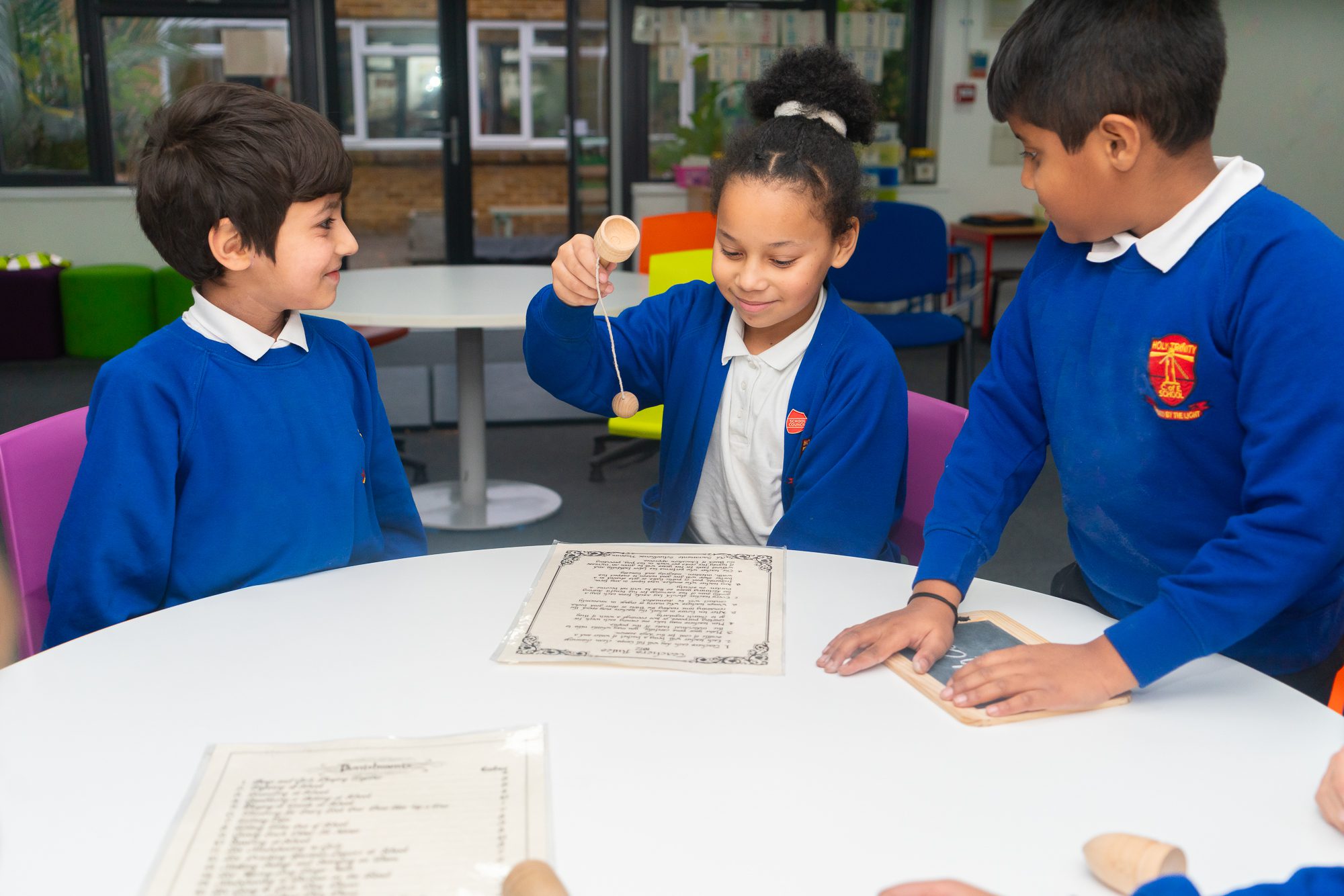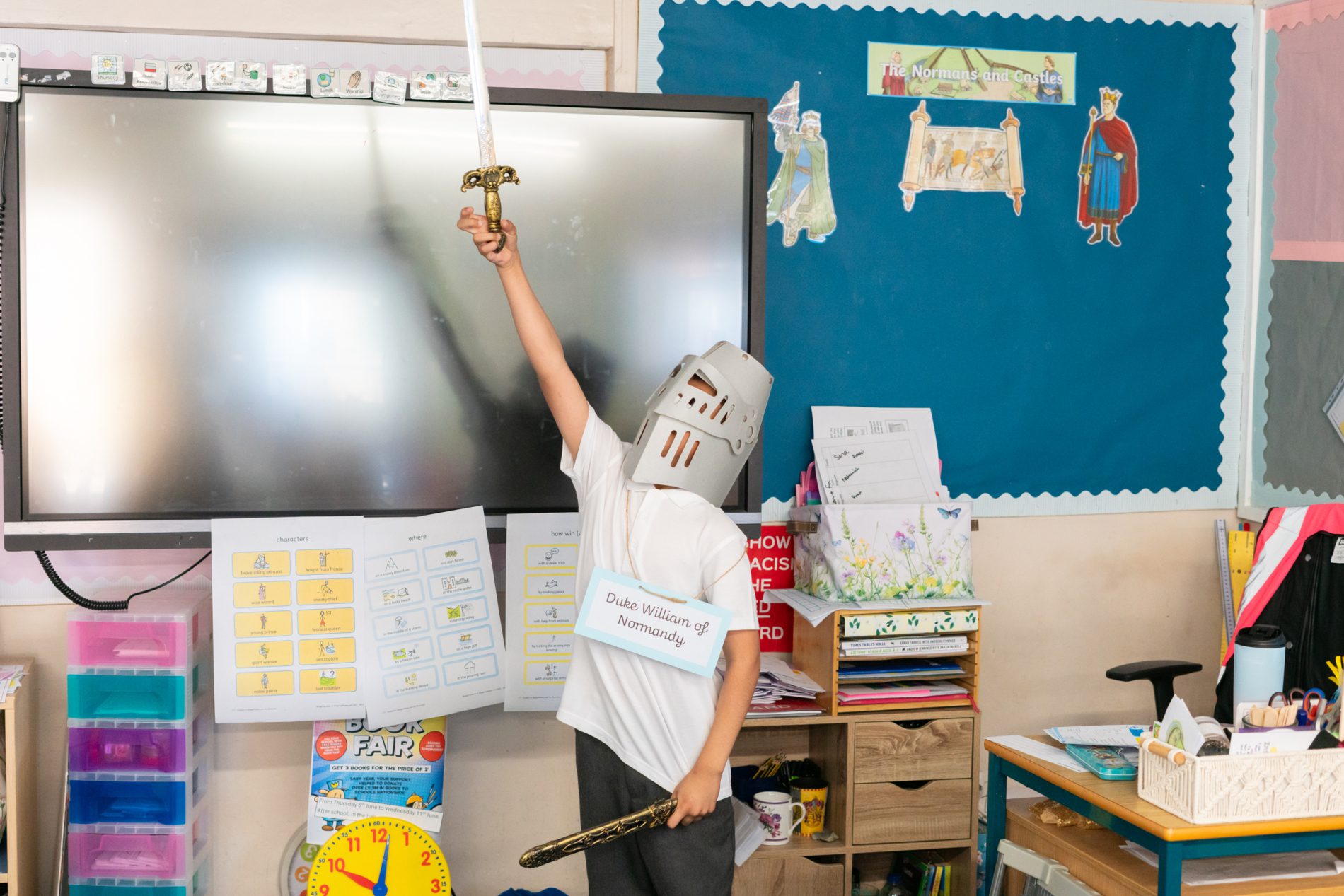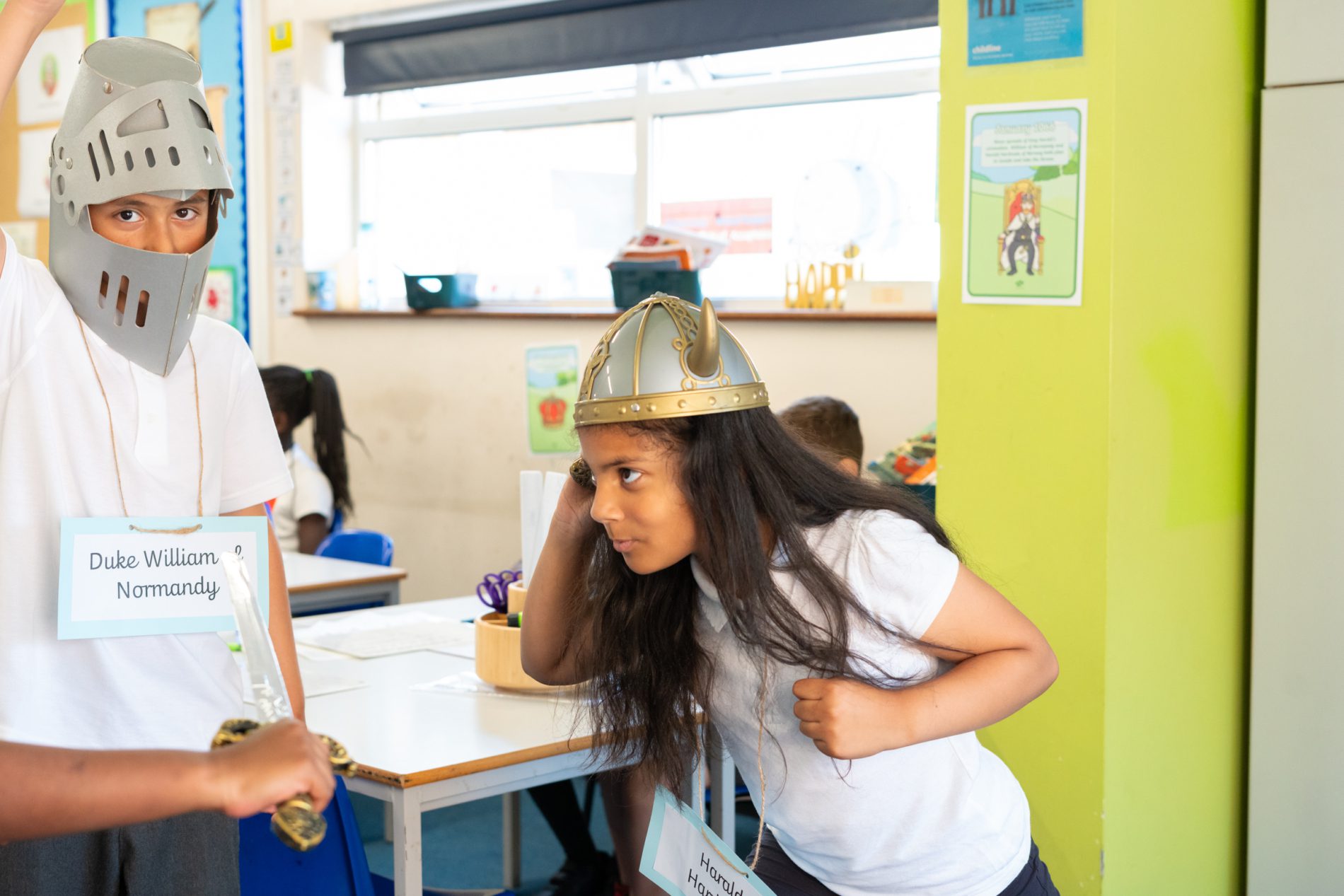History Subject Leader: Miss S Ward
At Holy Trinity, we believe it is truly important to have a strong understanding of history, for within the history books lay our future. A single period of history can become an entire realm of learning in itself, from the Maya with their fabulous pyramids to the ancient Greeks ruling the world under the brave Alexander the Great.
“Education is the lighting of a flame, not the filling of a vessel.” – Socrates (470-399 BCE) an ancient Greek philosopher.
For any more information on Holy Trinity’s History Curriculum, please contact the office.
Intent
At Holy Trinity CE Primary School, we inspire our pupils to find out more about the past by exciting their curiosity. Our curriculum covers the local area, national and internationally significant events and people.
Pupils are given a sense of time by ensuring that all history-led topics are placed within the chronology and context of a history timeline, using this to understand what concurrent historical topics occurred at the same time.
As a diverse community, we reflect this in the history we study, ensuring that ancient cultures from around the globe are represented and celebrated. Our history teaching equips pupils to ask perceptive questions, think critically, weigh evidence, sift arguments for bias, and develop perspective and judgement. These skills help pupils to understand the complexity of people’s lives, the process of change, the diversity of societies and relationships between different groups, as well as their own identity and the challenges of their time.


Implementation
History is taught through topics using cross-curricular planning to build on knowledge and skills learned elsewhere. All pupils will cover the National Curriculum aims for primary school pupils so that by the end of Year 6, children will have a breadth and depth of knowledge about key periods in History, from the Stone Age to the present day. The key knowledge and skills of each topic are identified and progression across topics throughout each year group, and across the school is clear. Pupils will be able to draw comparisons and make connections between different time periods and their own lives. We are making an effort to link the topics together, showing their relation to other time periods we are studying. Teachers will plan enrichment activities linking to the topic: either visits to historical sites, museums and/or workshops in school led by historical acting groups.
There are also many cross-curricular opportunities in history-led topics, for example:
- studying a variety of historical evidence including well-known pieces of music and artworks
- studying written historical sources
- writing balanced arguments and comparisons
- how the geographical features of a place led to settlement and defence.
Impact
Outcomes in pupil books show a range of historical objectives being taught and met. Pupils within the school will be aware of the chronology of their lives and how their personal timeline matches the timeline of our chosen topics within the school. As pupils move through the school they are encouraged to empathise with historical figures and consider how one period relates to others in history, using comparison and looking at how day-to-day lives are affected by certain periods in history. In history-led lessons, teachers place emphasis on analytical thinking and questioning which helps pupils deepen their understanding of themselves and others.

History in Each Stage
History is a tapestry of what happened in the past and why, whether our lives or those of others. Our children learn about significant events and people and their influence on life today. Within EYFS our children will learn about their own past, their own future. Focusing on traditional tales, stories of long extinct creatures such as dinosaurs. Conceiving the difference between past and future as concepts. This emerging knowledge and understanding can be used to explore crucial early historical skills.
Historical understanding can be used to extend the children’s learning and understanding of themselves and the world around them. This allows them to decentralise themselves, beginning to look outwardly. During their time in EYFS, children will be increasingly aware of the changes in routines during different times of the day and seasons of the year. These changes in times have an impact on what activities they can do (sleep, eat, play, home, holidays etc) as well as what they wear and what they celebrate. As they grow, we will celebrate their changes and differences, looking into costumes and dress-up to teach social skills at their early age. This usually links to the topic at the time in the class. The children in EYFS often learn and understand History by talking about the very recent past. They begin to use language like ‘yesterday’ and ‘last week’.
Pupils within KS1 develop their vocabulary bank relating to History, being able to convey their understanding with correct terminology (words such as ‘Before’, ‘After’, ‘Previously’). They should know where the people and events they study fit within a chronological framework and identify similarities and differences between ways of life in different periods. They should use a wide vocabulary of everyday historical terms. They should ask and answer questions, choosing and using parts of stories and other sources to show that they know and understand key features of events. They should understand some of the ways in which we find out about the past and identify different ways in which it is represented.
In planning to ensure the progression described above through teaching about the people, events and changes outlined below, teachers are often introducing pupils to historical periods that they will study more fully at key stages 2 and 3.
Pupils should be taught about:
Changes within living memory. Where appropriate, these should be used to reveal aspects of change in national life.
Events beyond living memory that are significant nationally or globally [for example, turrets and towers in the medieval period, our local history and our place in it as well as festivals or anniversaries]
The lives of significant individuals in the past who have contributed to national and international achievements. Some should be used to compare aspects of life in different periods. For example, Elizabeth I and Queen Victoria, Christopher Columbus and Neil Armstrong, William Caxton and Tim Berners-Lee, Pieter Bruegel the Elder and LS Lowry, Rosa Parks and Emily Davison, Mary Seacole and/or Florence Nightingale and Edith Cavell.
Significant historical events, people and places in their own locality.
Pupils should continue to develop a chronologically secure knowledge and understanding of British, local and world history, establishing clear narratives within and across the periods they study. They should note connections, contrasts and trends over time and develop the appropriate use of historical terms. They should regularly address and sometimes devise historically valid questions about change, cause, similarity and difference, and significance. They should construct informed responses that involve thoughtful selection and organisation of relevant historical information. They should understand how our knowledge of the past is constructed from a range of sources.
In planning to ensure the progression described above through teaching the British, local and world history outlined below, teachers should combine overview and depth studies to help pupils understand both the long arc of development and the complexity of specific aspects of the content.
SEND Information
SEND and disadvantaged children are given the required support within history lessons to access all national curriculum objectives.
History Extra Resources
Further History Help

